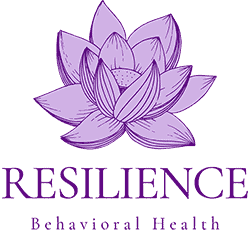Navigating Anxiety and Addiction: A Psychologist's Guide to Dual Diagnosis Treatment
Introduction:
Hey there! I’m Dr. Alex, a psychologist specializing in anxiety and addiction treatment. Today, I’m excited to take you on a journey through the fascinating world of dual diagnosis treatment for anxiety and addiction. We’ll explore how these challenges often intertwine, and I’ll share valuable insights to support your path to recovery. So, grab a cozy seat, and let’s dive right in!
I. Understanding Anxiety and Addiction
Defining Anxiety: Anxiety is like that constant companion, making your heart race and mind spin with worry. It can turn everyday tasks into daunting challenges, affecting your well-being.
Grasping Addiction: Addiction is that sneaky little monster, luring you in with temporary relief but keeping you trapped in a harmful cycle. It can manifest as substance abuse or behavioral compulsions.
Recognizing the Link: Anxiety and addiction often coexist, forming a complex relationship where one can exacerbate the other.
II. The Intersection of Anxiety and Addiction
Shared Vulnerabilities: Genetic predisposition, life experiences, and environmental factors can make individuals susceptible to both anxiety and addiction.
The Biopsychosocial Model: Anxiety and addiction result from a combination of biological, psychological, and social influences, making treatment more holistic and comprehensive.
Triggers and Coping Mechanisms: Anxiety can drive individuals toward addictive behaviors as a way to cope with overwhelming emotions.
III. Challenges in Diagnosis and Treatment
Identifying Dual Diagnosis: Diagnosing both anxiety and addiction together can be complex, but it is crucial for effective treatment.
Stigma and Misunderstandings: The stigma surrounding mental health and addiction can hinder individuals from seeking help, leading to delayed or inadequate treatment.
The Importance of Comprehensive Assessment: Comprehensive evaluations are essential to understand each individual’s unique struggles and design tailored treatment plans.
IV. Holistic Approach to Dual Diagnosis Treatment
Integrated Treatment: Combining therapies for anxiety and addiction provides a more effective approach, addressing both challenges simultaneously.
Evidence-Based Therapies: Evidence-based treatments like Cognitive-Behavioral Therapy (CBT) are powerful tools to target anxiety and addiction.
Medication Management: Medications can be a helpful adjunct to therapy, providing support during the recovery journey.
V. Cognitive-Behavioral Therapy (CBT) for Dual Diagnosis
Unraveling Negative Thought Patterns: CBT helps individuals identify and challenge negative thoughts that contribute to anxiety and addictive behaviors.
Coping Skills and Relapse Prevention: CBT equips individuals with coping strategies to manage triggers and prevent relapse.
Success Stories: Real-life examples of individuals who found empowerment through CBT in their journey to overcome anxiety and addiction.
VI. Mindfulness and Stress Reduction Techniques
Cultivating Mindfulness: Mindfulness practices help individuals stay present and reduce anxiety by focusing on the here and now.
Mindful Sobriety: Mindfulness supports individuals in maintaining sobriety by increasing self-awareness and emotional regulation.
Mindfulness in Everyday Life: Simple mindfulness exercises can be incorporated into daily routines to promote overall well-being.
VII. Family Involvement and Support
The Role of Family in Dual Diagnosis Treatment: Involving family in treatment can provide crucial support and understanding during the recovery process.
Strengthening Family Bonds: Open communication and education about anxiety and addiction can foster a supportive family environment.
Family Education: Educating families about dual diagnosis enhances empathy and reduces stigma.
VIII. Embracing a Life in Recovery
Celebrating Milestones: Each step in the recovery journey is a victory worth celebrating, no matter how small.
Embracing a New Identity: Recovery offers a chance to redefine oneself beyond anxiety and addiction, embracing a new and empowered identity.
Thriving in Sobriety: Sobriety opens doors to new opportunities, passions, and connections, leading to a fulfilling life.
Conclusion:
Congratulations on making it through our journey of anxiety and addiction. As a psychologist specializing in this area, I’m here to support you every step of the way. Seeking help is an act of courage, and remember, you are not alone in this process. Embrace the challenges, celebrate the victories, and know that brighter days are ahead. Your story is one of resilience and growth, and I’m proud to be a part of it. Keep shining, and let’s navigate anxiety and addiction together toward a brighter and healthier future!


